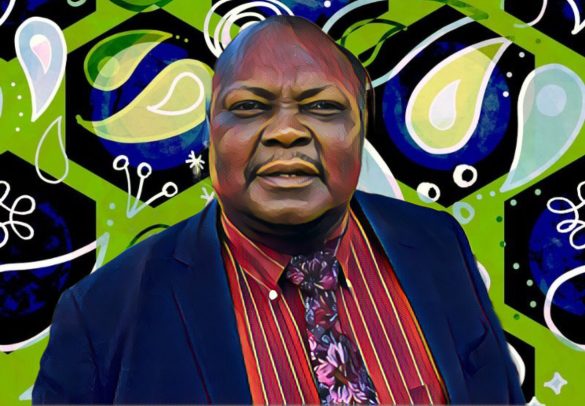In a startling revelation that underscores the complexities of political relationships in Zimbabwe, the former Member of Parliament (MP) and notable political figure, Job Sikhala, has publicly expressed feelings of abandonment by those he once considered allies. Sikhala, a prominent member of the Citizens Coalition for Change (CCC), has been in pretrial detention at Chikurubi Maximum Security Prison for over 600 days, following his arrest on June 14, 2022.
In a heartfelt public letter released on Thursday, Sikhala lamented the absence of support from his political peers, including CCC President Nelson Chamisa. Despite his longstanding contributions to the party and his crucial role in Zimbabwe’s political landscape, Sikhala revealed that he has not received visits or even minimal gestures of support from these individuals during his time in detention.
Sikhala’s remarks seem to indirectly critique Chamisa and others within the CCC. This sentiment reflects a growing divide within the party, highlighting the internal challenges faced by opposition groups in Zimbabwe. Sikhala’s distress is evident as he contrasts the lack of support from his political circle with the solidarity shown by ordinary citizens, who have stepped in to provide for his and his family’s needs during this challenging time.
The circumstances of Sikhala’s detention have been controversial. His arrest, under accusations of inciting violence and obstructing justice, has been viewed by many as politically motivated—a tactic to silence a vocal critic of the government. Efforts by Chamisa to visit Sikhala have been thwarted by Zimbabwe Prison and Correctional Services (ZPCS), citing the need for clearance ‘from the top.’ These restrictions have raised concerns about the fairness of Sikhala’s treatment and the independence of Zimbabwe’s judicial processes.
The internal dynamics of the CCC are further complicated by Sikhala’s disclosure of a dispute over monetary contributions for a birthday present, a seemingly trivial matter that signifies deeper issues of trust and unity within the party. This incident, along with Sikhala’s stark warning against accepting aid from ‘hostile forces,’ suggests a party at odds with itself, struggling to maintain cohesion in the face of external pressures and internal disagreements.
In response to his situation, Sikhala has taken a proactive step by setting up a structured committee for international engagement. This committee, led by seasoned labor activist Obert Masaraure, forms part of the Free Job Sikhala Solidarity Movement. It includes regional and international ambassadors, such as Washington Ali, Patricia Chinyoka, and Makomborero Haruzivishe, tasked with garnering global support and highlighting Sikhala’s plight on international platforms.
Sikhala’s experience and the reactions it has elicited bring to the fore the broader challenges facing opposition politics in Zimbabwe. It underscores the risks faced by political dissidents in a landscape marked by a lack of tolerance for dissent and the use of the judicial system to stifle opposition voices. Furthermore, Sikhala’s case has become a symbol of the struggle for political freedom and justice in Zimbabwe, resonating with a populace that has long grappled with issues of governance, human rights, and democratic processes.
As Job Sikhala continues to face his ordeal, the responses from his party, the government, and the international community will be closely watched. His situation is not just a personal struggle but a testament to the state of political freedom and human rights in Zimbabwe. It remains to be seen how this will unfold and what implications it will have for the future of the CCC and Zimbabwe’s political landscape.
In conclusion, Job Sikhala’s situation is a poignant reminder of the complexities and challenges of political activism in Zimbabwe. His story is one of personal hardship, political intrigue, and a struggle for justice, resonating with many inside and outside the country’s borders. As developments continue to unfold, they will undoubtedly shape the narrative of political resistance and solidarity in Zimbabwe.


